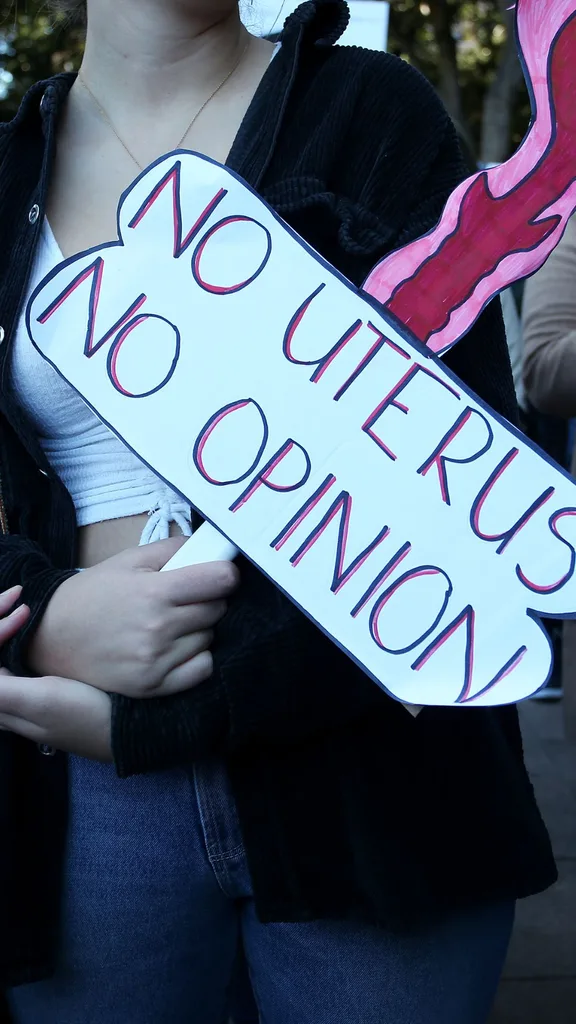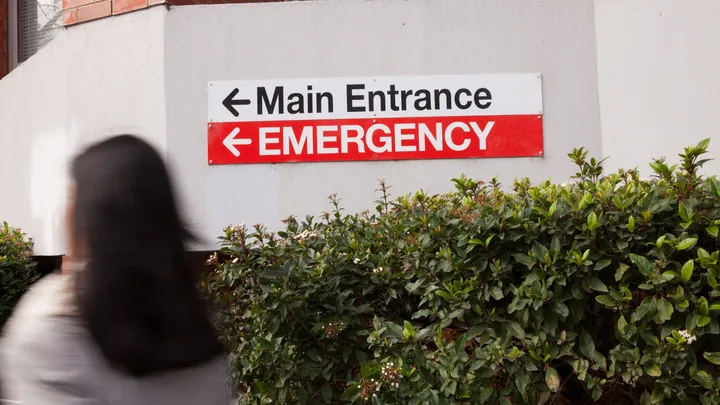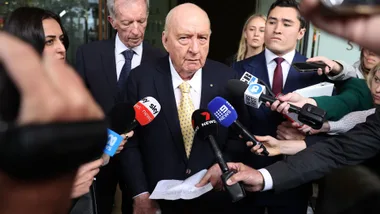Following an ABC investigation that revealed a mandate to ban abortion services in a regional NSW public hospital, the state’s Health Minister Ryan Park has intervened to reinstate access, effective immediately. But how did we get here?
A leaked document obtained by the public broadcaster earlier this week outlined a mandate for staff at Orange Health Service in Central West NSW to cease abortion services for patients with “no identified pregnancy complications”. Sources maintained that there had been no such mandate previously, with both medical and surgical terminations offered up until that point as per NSW state law.
A flow chart indicating the points at which it was ‘acceptable’ for women seeking abortion services to access a termination was sent to staff, who were told to refer the patient to their GP or “seek advice from Family Planning”, unless there was an “unfortunate fetal anomaly prognosis or severe maternal medical condition”. Staff also noted that the nearest Family Planning clinic was hours away, only provided medical terminations and wasn’t open on weekends.
After news of the mandate broke, the medical body which oversees Western NSW Local Health District responded to the ABC, stating that they had assessed the immediate situation and confirmed that access and services would be restored.
The spokesperson also noted the issue had prompted an enquiry into more widespread access issues throughout regional NSW. “In line with the next steps NSW Health is taking to enhance access to safe abortion care, Western NSW LHD is also undertaking a separate assessment and review of access to services across public facilities in Western NSW.”
In a statement issued by NSW Health Minister Ryan Park, he wrote: “Your postcode shouldn’t affect access to affordable and timely abortion services. @wnswlhd is now undertaking a review of access to abortion services across its public facilities.”
Sharing their frustrations with the ABC, anonymous staff members spoke about the impact of the ban and the executive’s attempts to go above the law.
“It’s just an opportunity for the hospital executive to say, ‘If you provide a termination for non-medical reasons, we can reprimand you’,” said one clinician.
“Usually, when you treat a patient, it’s a therapeutic relationship — just patient and doctor. That’s a privileged relationship. To have the executive muscling their way into the midst of it, damages that trust.”
Are Abortions Legal In Australia?

Yes, abortion is legal in all states and territories under certain circumstances, and when done by a registered doctor.
Additionally, after Western Australia became the last state or territory in the country to decriminalise abortion in March 2023, the procedure was officially removed from the criminal code nation wide.
This meant that access to termination services and abortion healthcare across Australia became significantly easier, with women no longer requiring mandatory counselling, or GP referrals before deciding to go through with a termination.
It also meant that, depending on the state law, late-term abortions could be accessed up until 23 weeks. However, despite the decriminalisation, access to what was widely acknowledged to be essential medical care, has still been impacted by socioeconomic and geographic factors.
What Is The Law In NSW?
Current legislation states that women and pregnant people are request termination services, and doctors are able to perform an abortion after gaining informed consent up to 22 weeks of pregnancy. After 22 weeks, abortions must occur in a hospital or approved health facility by a specialised practitioner, who has consulted with another medical doctor.
The exception to this rule is the ‘conscientious objection’ argument, whereby a medical practitioner (not a hospital executive) can object, but must provide information about how to contact or locate another doctor, or transfer care to a practitioner “reasonably believed not to have a conscientious objection”.
In terms of availability, there are two types of abortion services offered in Australia: medical and surgical.
A medical abortion is performed up to 9 weeks from the first day of a woman’s last period, with surgical abortions carried out between 7-12 weeks, which is when the majority of terminations in NSW occur.
Why Are We Talking About Abortions Again?
The fact that a mandate such as the Orange Hospital abortion ban was able to make it down the line is a worrying example of a wider issue.
In October this year, a conscience vote on legislation that sought to force women seeking an abortion after 27 weeks and six days, to be induced with the intention of delivering the child alive, was only narrowly defeated in South Australia.
Similarly, women’s reproductive rights face an uncertain future in Queensland following the results of its recent election, where the LNP have refused to rule out a conscious vote on Robbie Katter’s promised Termination of Pregnancy (Live Births) Amendment Bill.
In response to Katter’s proposal to “repeal abortion laws” The Royal Australian and New Zealand College of Obstetricians and Gynaecologists (RANZCOG) released a statement calling for the safeguarding of the state’s abortion rights, as well as condemning the proposed bill.
“We are deeply concerned by recent discussions suggesting the potential recriminalisation of abortion,” the letter reads. “This would be a harmful step backward, risking the health and safety of pregnant people and undoing years of progress.”
“Access to abortion is essential healthcare. Restricting it leads to dangerous consequences, with vulnerable communities facing the greatest harm. We must ensure that decisions about pregnancy remain personal and healthcare-based, not politicised.”
As reproductive rights re-enter the political landscape in a big way, we only have to look further afield to the devastating effects of America’s reversal of Roe Vs Wade to understand what’s at stake for women in Australia, and around the world. And after the results of this year’s US election, it’s clear that nothing can be taken for granted.
READ NEXT
Are Australia’s Abortion Laws Changing?
What Exactly Did Australian Women Lose In The Queensland Election?
What Does A Trump Win Mean For Australians?
 Getty Images
Getty Images









